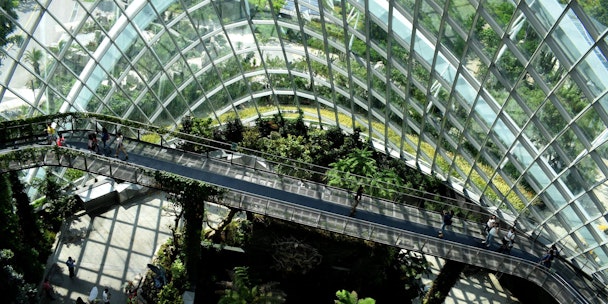Sustainability issues have a ‘pronounced’ cultural and generational divide
There are pronounced cultural and generational divides when it comes to what sustainability means and how important it is to consumers, according to a new report from McCann Worldgroup, The Truth About Sustainability.

Globally, ‘plastic’ and ‘driving’ are the top two things that people report knowing ‘are bad for the environment
The report surveyed over 12,000 respondents globally and includes APAC markets like China, India, and Japan.
What did the study find?
-
80% of people surveyed in China said they are worried about climate change (the highest percentage globally).
-
However, definitions of sustainability vary greatly as 40% of people in Japan describe ‘protecting future generations’ as their best understanding of the word “sustainability” - the highest figure reported globally for this particular response.
-
In contrast, the number one answer in India, by a significant amount at 26%, was that they describe sustainability as a way of life (collective actions)’.
-
62% of 18–24-year-olds globally say they are worried about climate change versus 68% of 55–64- year-olds.
-
Globally, more older people felt that companies should be required by law to protect and conserve nature as compared with younger people (73% of 55-64-year-olds, and 69% of 45-54-year-olds vs 67% of younger people aged 18-24).
-
38% of 18–24-year-olds say they’ve ‘bought a product solely because the brand took a stand on an issue I care about, with that figure increasing significantly for older people - 43% of those aged between 45-54.
-
Findings indicate 30% of parents/grandparents globally describe ‘protecting future generations’ as their best understanding of ‘sustainability, versus non-parents at just 21% globally.
-
34% of parents globally ‘constantly worry’ about climate change, compared with 30% for non-parents.
-
When asked ‘what do you perceive to be the number one barrier to living a more sustainable life?’, 29% of respondents in Japan said ‘too expensive as the number one barrier. This is the highest figure globally vs the global average of 21%.
-
41% of respondents in India stated that they sometimes buy the cheapest option even if they know it’s bad for the environment. This is the highest figure globally vs the global average of 31%
-
In contrast, only 28% of people in Japan stated that they sometimes buy the cheapest option (even if they know it’s bad for the environment). This is the lowest figure reported in APAC.
-
Globally, ‘plastic’ and ‘driving’ are the top two things that people report knowing ‘are bad for the environment but I keep doing/using anyway’.
-
However, there is a desire for more action and involvement. 85% of respondents in China feel that companies should be required by law to protect and conserve nature. This is the highest figure globally (vs the global average of 67%).
-
When responding ‘I have bought a product solely because the brand took a stand on an issue I care about, India exceeded the global average at 45 % vs 40% globally.
-
Richard McCabe, chief strategy officer for APAC at McCann Worldgroup, said: “Sustainability is clearly of great importance to all, and whilst it’s a complex issue, putting humanity at the center of it, allows us to understand the nuances at play and approach it holistically. There is an opportunity for every type of company to find their role in what they can sustain and indeed an expectation for them to get behind the cause, and take action to be part of creating meaningful solutions”.

